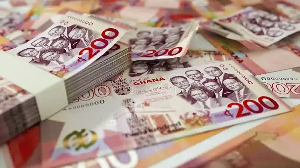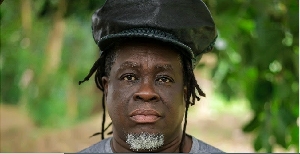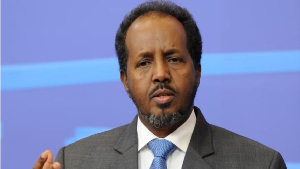Accra, June 21, GNA - The Vice President, Mr John Dramani Mahama, on Tuesday announced that Government would increase the manpower of the Ghana Police Service by an additional 16,000 personnel.
He said Government was also on the verge of procuring major equipment for the Police to help them carry out their duties effectively.
Mr Mahama said 93If we increase the manpower of the Police and they do not have the necessary equipment to work, it would be useless," at the inauguration of the National Headquarters of the Community Policing Unit (CPU) in Accra.
The CPU of the Ghana Police Service was established in 2003 with the aim of implementing techniques of handling crime through community participation in preventing, detecting and reducing crime as well as the fear within the communities.
Work on the new office complex, which has modern equipment, was facilitated by the British High Commission with money and services provided by the Bank of Ghana, MTN, Virgin Airlines, G45 Security Services Limited and Interplast Limited.
Mr Mahama also announced that the Government would provide the Police with new bulletproof vests and finger print equipment and refurbish the Police Ballistic laboratory and establish a DNA laboratory to help fight crime.
He said Government was committed to ensuring that all the 700 Police stations across the country were provided with the necessary equipment to help them fight crime.
The Vice President said: "No matter how well resourced the Police are, without the community's support they cannot achieve their objectives" and cautioned the public against lynching suspected criminals.
He said the laws of Ghana presume every person to be innocent until proven guilty.
Mr Mahama said "If we arrest people we suspect to be criminals we must hand them over to the Police for them to deal with the issue".
The Inspector General Police (IGP), Mr Paul Tawiah Quaye, said Community Policing was a basic tool that could be used to provide an interface between normal Police activities and cooperation with local community members to achieve important objectives.
He explained that Community Policing brought Police and citizens together to solve neighbourhood conflicts and criminal issues with emphasis on preventing crime.
The IGP said effective Community Policing could assist in reducing neighbourhood crime, fear of crime and enhance the quality of life of people in communities.
He gave the assurance that the Police administration would expand the programme by developing other regional and district offices to help provide quality Policing to Ghanaians.
Mr Peter Jones, the British High Commissioner in Ghana, said the construction of the new office complex for the Community Policing marked a new cooperation between the two nations.
He said the United Kingdom had good expertise in Community Policing, which it was prepared to share with Ghana.
Mr Jones commended the IGP for his commitment to the project as well as Mr Keith Ashong, a British Metropolitan Police Officer from London, who was attached to the Ghana Police Service to help to implement the Community Unit.
General News of Tuesday, 21 June 2011
Source: GNA












